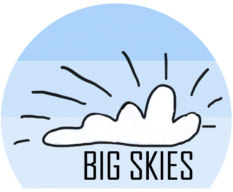
Inspired by an excellent recent BBC podcast on allergies as part of “The Curious Cases of Rutherford and Fry” a quick run through of things that I have learnt and found super interesting. Not a normal blogging topic for me but I thought worth sharing.
We are pretty much all affected by allergies one way or another. Either directly suffering or knowing someone who suffers. My own wife has a shellfish allergy, I suffer from hayfever and subsequently have developed Pollen food syndrome, my youngest child an egg allergy. Here are ten super useful things to know about allergies which I think are worth knowing and could even improve your life.
- An allergen is just a non harmful substance that is classed as harmful by the immune system. Most commonly Pollen or specific foodstuffs.
- An allergic reaction is therefore a mistake by the immune system. Much of the immune system and allergic reactions is still a a mystery. However, we do know that an allergic reaction occurs when the immune system mistakes a substance, the allergen, for something requiring an immune response.
- You only get a reaction the second time you are exposed. The first exposure is the learning experience, i.e. when the immune system “decides” the allergen is a threat that needs an immune response. So just because there is no reaction to an allergen on first exposure it does not mean all is clear for that allergen.
- The above “learning process” is part of the reason why allergies occur. If you have exposure to an allergen at the same time as you experience something that requiring an immune response, e.g. a virus or a parasite, this can confuse the immune system sufficiently for it to associate the allergen with the illness. Thereby coding in a future immune response (bummer). This is one of the reasons you can develop an allergy later in life. My wife’s shellfish allergy developed after developing very nasty food poisoning after dodgy prawns.
- Allergies are now more common than in the past! We’ve all heard the anecdote, “nobody had all of these allergies when i was small”. There is some truth in that statement although the much cited theory of why is now thought to be incorrect. i.e. it’s not because kids don’t play outside and get dirty. Additionally it is certianly true that diagnosis is probably better nowadays.
- The “we wash our hands to much” hygiene theory has been largely de-bunked. So scientists have pretty much rejected the idea that we are all too clean. However there is a lot of emerging evidence that gut biome and exposure to wide ranging allergens in the gut is important in avoiding allergies.
- The swelling and cold like reactions (sneezing & snot) are caused by our cells “degranulating” and releasing certain chemicals. When the immune system detects the allergen and responds by producing the antibodies it has learnt as an appropriate response, it causes cells to pump out chemicals such as histimine which cause irritating symptoms. Hence “anti-histimines” are effective.
- By avoiding exposure of babies to potential allergens we could increase the chance of them developing an allergy. It is thought that a well meaning “I won’t give little Suzy peanut butter in case she has an allergic reaction” could actually cause little Suzy to develop a peanut allergy. There are specific stages in life where it is beneficial to be exposed to potential allergens. Developing our immune system is one of them. Without exposure to allergens under normal circumstances immune system doesn’t learn that these are not a threat.
- There is no magic cure for allergies, BUT, and it is a big but, some trials have shown success of microdosing allergens as a means of desensitising response to allergens. A great article on this here.
- Allergy prevelance in the developing world has also increase. It is a common misconception that this growth of allergy rates is a purely western thing however the rise in incidence is global.
If you want to learn more on this I highly recommend the BBC podcast that inspired this post.
